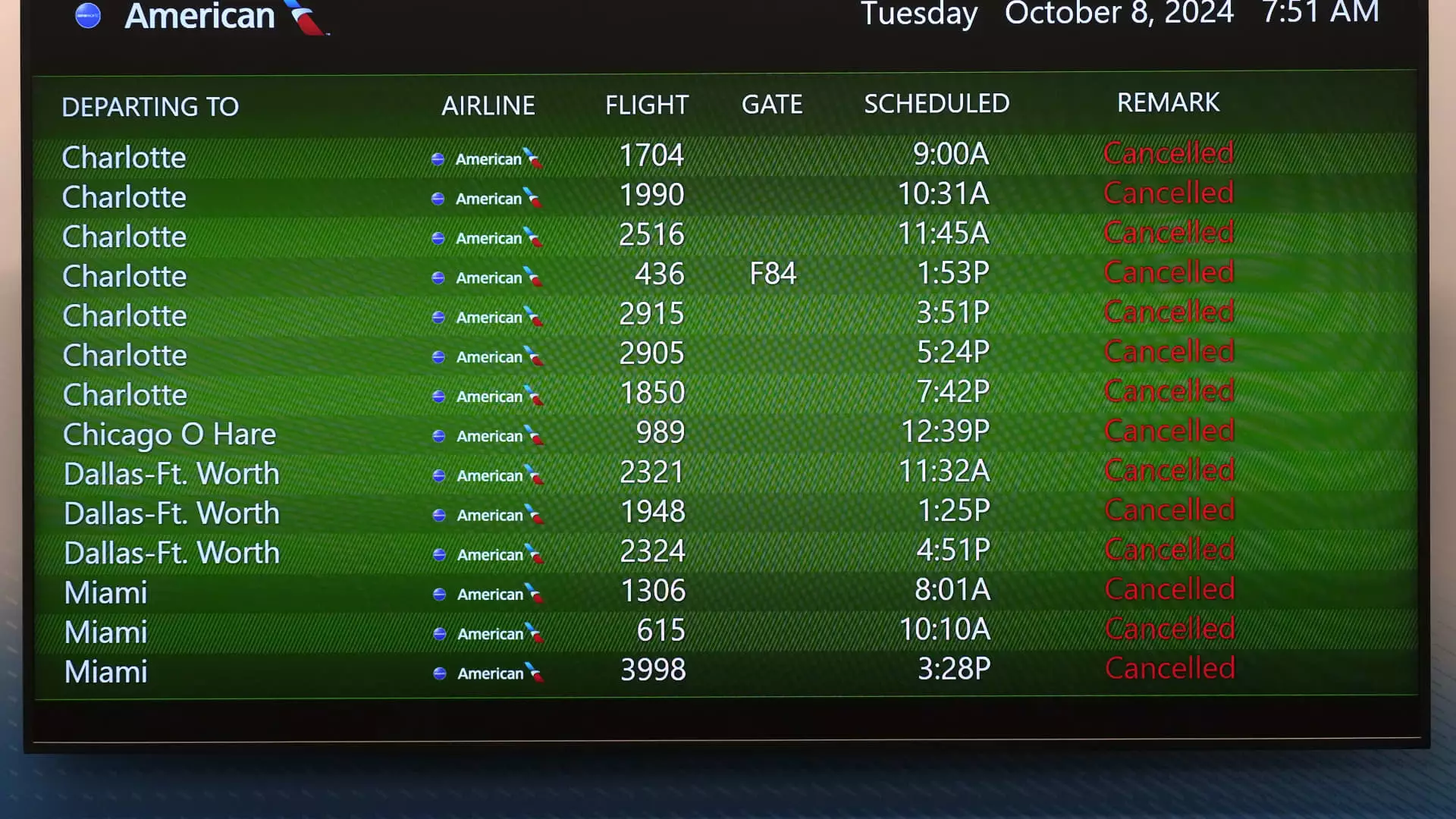In anticipation of Hurricane Milton’s approaching landfall, a comprehensive state of emergency has swept across Florida, affecting millions of residents and visitors alike. Classified as a Category 4 hurricane, Milton is packing formidable sustained winds of around 145 miles per hour. According to the National Oceanic and Atmospheric Administration (NOAA), the hurricane is predicted to strike the western coast of Florida, particularly impacting areas known for their vibrant tourism and bustling communities. With over 50 counties under urgent warnings, authorities are bracing for significant disruptions across various sectors.
The hurricane’s imminent arrival has led to substantial cancellations in airline services, particularly at two of Florida’s busiest airports. Tampa International Airport halted operations early Tuesday morning, with plans to resume only when conditions permit. Meanwhile, Orlando International Airport announced a planned closure as well, deepening the turmoil for travelers. Southwest Airlines, a major carrier in the region, has proactively canceled 402 of its scheduled flights, summing up to over 85% of the travel itinerary for that day, according to FlightAware data. The rapid and wide-scale cancellations illustrate the gravity of the situation and have pushed airlines to waive change fees and fare differences for impacted passengers.
As hurricane preparations escalate, theme parks across Florida are also implementing precautionary measures. Disney has announced the temporary closure of select accommodations such as Fort Wilderness Resort & Campground, while Universal Orlando remains operational for now, encouraging visitors to stay updated on any changes. The responsiveness of these parks is critical not only for the safety of guests but also for ensuring operational integrity during such tumultuous times. Conversely, Busch Gardens Tampa is closing its doors for several days as a safety precaution, reflecting a town-wide commitment to safeguard both visitors and employees amid impending storms.
Cruise lines have not remained untouched by the encroaching storm either. Companies such as Carnival have issued alerts, indicating potential port closures in major Florida cities including Jacksonville, Tampa, and Miami. Navigating around Hurricane Milton, cruise lines are altering their usual routes to avoid the deteriorating weather conditions, emphasizing their priority for passenger safety and maritime compliance. This preemptive strategy highlights the collaborative efforts within the travel industry to mitigate risks associated with severe weather phenomena.
The ramifications of Hurricane Milton reflect a broader narrative of community resilience in the face of natural disasters. Floridians are no strangers to hurricanes and have developed robust systems for preparation and response. While the disruption of flights, the closing of theme parks, and the adjustment of cruise routes present immediate inconveniences, the underlying readiness and adaptive capacity displayed by both residents and businesses are commendable. Ongoing assessments and collective safety measures are crucial components in navigating the storm’s impacts, reaffirming Florida’s enduring spirit amid the chaos of Hurricane Milton.
In sum, as residents brace for the storm’s fallout, they are also reminded of their community’s strength and the vital importance of preparedness in mitigating the impacts of such unforgiving weather events.

